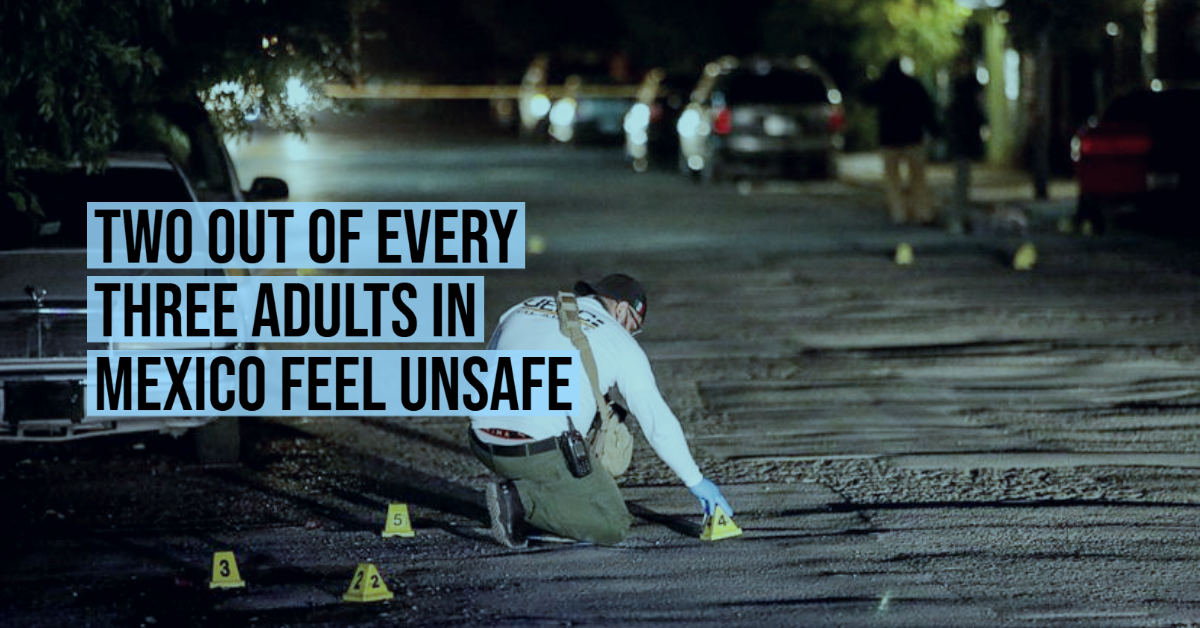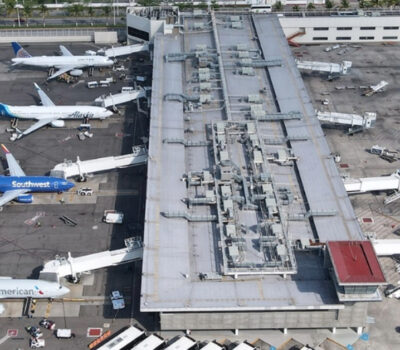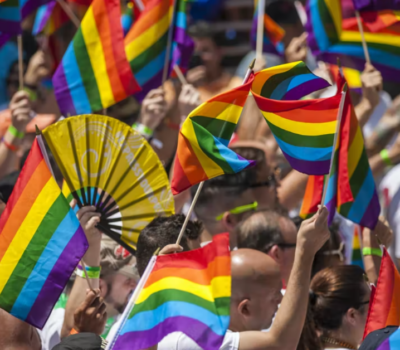Murders, kidnappings, and organized violence continue in many parts of Mexico, a country where 66.4% of the adult population doesn’t feel safe. The latest National Survey of Urban Public Safety of the National Institute of Statistics and Geography (Inegi) published on Monday reveals that the cities where there is a greater sense of insecurity are Fresnillo, Ecatepec de Morelos, and Cuernavaca, followed by Gustavo A. Madero, Uruapan, and Guadalajara. Even as bad as the numbers seem, they are the best numbers in recent years for Mexico.
During the last month of March, two out of three adults said they felt unsafe in their respective cities. The most notable results of the Inegi survey focused on Fresnillo , Ecatepec de Morelos, Cuernavaca. There, between 94.2% and 87.8% said they felt insecure. Next are Gustavo A. Madero, Uruapan and Guadalajara, where around 86% of the population share this sentiment. On the contrary, the city where the inhabitants breathe easier is San Pedro Garza García, where only 8.2% of the population confessed to feeling unsafe. They are followed by Tampico, San Nicolás de los Garza, Los Cabos, Piedras Negras and Mérida, with varying results between 25% and 30%.
The survey figures point to a pronounced decrease in the feeling of insecurity compared to previous months. Last December, marked by the shooting murder of Aristóteles Sandoval, former governor of Jalisco, in Puerto Vallarta and a recent shooting in the heart of the capital that killed the chief of police, the perception of insecurity was shared by 68% of the population. In Puerto Vallarta, 35.5% of adults feel unsafe, which is a 2.2% increase since December when 33.7% of adults in Puerto Vallarta reported feeling unsafe.
In March 2020, when 21 women were murdered in the country during the two days of feminist protest and before the end of the month they killed María Elena Ferral, a journalist in Veracruz, the perception was 73.4% insecurity.
The most significant increase since December has been in Los Cabos, in Baja California Sur, where the population that feels insecure has gone from being 17.3% to 26.2%. This variation in just three months has also occurred in the Gustavo A. Madero area of Mexico City, where the feeling of insecurity has grown by 21.7%. In terms of gender, Mexican women declare that they feel more insecure than men, with 71% saying they felt unsafe, compared to 61% of men.
The data for the last month of March coincides with the deadliest homicide rates during the government of President Andrés Manuel López Obrador, with 2,444 murders in just 31 days. In his first three years as president, homicides have barely decreased by 1.6%. And femicides have increased by 8.5% and extortion by 21%. However, the security perception figures are the best since he took office – in March 2018 the figure was 76.8%, the highest peak ever recorded – and mark a new all-time low since Inegi began to conduct the survey in 2013.
In addition to the fear of homicides, kidnappings, or extortion, Mexico feels insecure in different daily activities. Three out of every four Mexicans feel unsafe when using an ATM on public roads in their city. Two out of three feel insecure on public transport, 63% in the bank and 59% on the streets they usually use.
Murders, kidnappings, and organized violence continue in many parts of Mexico, a country where 66.4% of the adult population doesn't feel safe . . .












